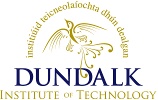Sheng, Yiyang (2024) Exploring Patterns of Engagement with Digital Health Technologies Amongst Older Adults Living with Multimorbidity. Doctoral thesis, Dundalk Institute of Technology.
|
PDF
Download (3MB) |
Abstract
Multiple chronic conditions (multimorbidity) are becoming more prevalent amongst ageing populations. Digital health technologies have the potential to assist in the self-management of multimorbidity, supporting monitoring of symptom and well-being parameters, improving a person’s awareness of their health and well-being, supporting a better understanding of the disease(s), encouraging health behaviour change and ultimately resulting in improved health outcomes. However, little research has explored the long-term engagement of older adults with such digital interventions. The aim of this PhD project was to analyse how 60 older adults (average age=74 ± 6.4 [65-92 years]) with multimorbidity (two or more of the conditions diabetes, heart failure, heart disease, chronic obstructive pulmonary disorder (COPD)) engaged with digital symptom and well-being monitoring when using the ProACT digital health platform over a period of approximately 12 months. For the purposes of this thesis, only 56 participants' data records were used in the data analysis phase, as four participants had no data records in the dataset. The ProACT platform consisted of a suite of digital devices (for example a blood pressure monitor, blood glucometer, pulse oximeter, weight scales, and activity and sleep tracker) and the ProACT CareApp which participants used to view their data, self-report on other areas of health and well-being not measurable by a digital device (such as breathlessness, mood), set goals and receive education. Three studies were carried out on the resulting quantitative dataset. In the first study, data analysis focused on user retention, frequency of monitoring, intervals in monitoring and patterns of daily engagement. During the second study, principal component analysis and clustering analysis were used to group participants based on their levels of engagement, and the data analysis focused on characteristics such as age, gender and chronic health conditions, engagement outcomes and symptom outcomes of the different clusters that were discovered. In the final study, the weekly submission times for each parameter were used to obtain an engagement score (ES) and this score was compared with the Mobile Device Proficiency Score (MDPS), a measure of an older adult’s technical proficiency with mobile devices. Both cluster analysis and multiple regression were used in this study to explore whether participants’ engagement with digital health technology was related to their mobile device proficiency. The findings from the studies show that the overall engagement with the ProACT digital health platform was high, with more than 80% of participants using the technology devices for over 200 days. The submission frequency for different symptom parameters (e.g. blood glucose, blood pressure, etc.) was between three and four times per week which was higher than that of self-report (2.24) and weight (2.84). Submissions of activity (6.12) and sleep (5.67) were more frequent. The majority of interactions happened in the morning time. The most common time of submission for symptom parameters was 10 am, whereas 8 am was the most common time for weight measurements. In addition, three clusters were identified: the typical user group (n = 24), the least engaged user group (n = 13), and the highly engaged user group (n = 17) in the second stage of analysis. The findings indicate that gender and the types of chronic conditions do not influence engagement. Whether the same device was used to submit different health and/or well-being parameters; the number of manual operations required to take a reading; and the daily routine of the participants were the three primary factors influencing engagement. Findings also indicate that higher levels of engagement may improve the participants’ outcomes (e.g., reduce symptom exacerbation, and increase physical activity). Finally, results from the third study indicate that engagement with digital health technology has a weak correlation with mobile device proficiency in older adults. Despite participants having low to modest technical proficiency, the majority engaged with the platform for the duration of the trial. The findings highlight the patterns of engagement of older adults with complex chronic diseases with a digital home-based self-management platform and demonstrate the potential of a digital health platform, such as ProACT, to empower older adults with multimorbidity to engage in digital self-management. Based on the findings, a series of recommendations for researchers, designers and developers of digital health technologies are provided. For example, engagement might be enhanced by delivering reminders in the mornings and reducing the number of manual operations required to use monitoring devices. The outcomes of this PhD also have possible implications spanning digital inclusion policies, health outcomes, health systems, cost-effectiveness, and health policy. For example, through the use of digital health technologies, older adults might potentially have better health outcomes, which could ultimately reduce healthcare costs for both patients and healthcare systems.
| Item Type: | Thesis (Doctoral) |
|---|---|
| Subjects: | Computer Science Social Sciences > Older people |
| Research Centres: | UNSPECIFIED |
| Depositing User: | Julie Doyle |
| Date Deposited: | 19 Sep 2024 09:17 |
| Last Modified: | 19 Sep 2024 09:17 |
| License: | Creative Commons: Attribution-Noncommercial-Share Alike 4.0 |
| URI: | https://eprints.dkit.ie/id/eprint/889 |
Actions (login required)
 |
View Item |
Downloads
Downloads per month over past year

